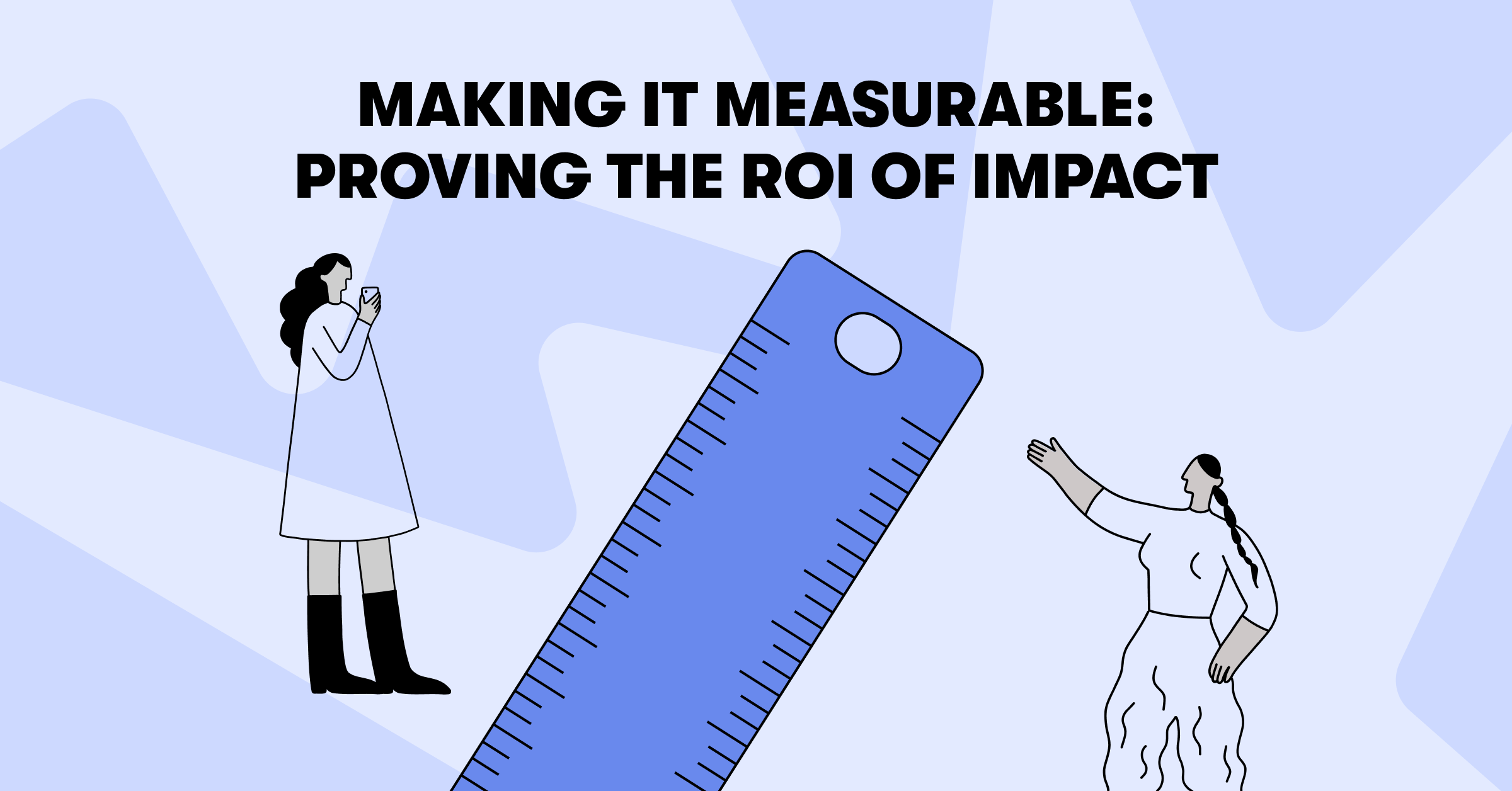The Role of Technology in Modern Social Impact
Part 1 of Deed’s Making it Measurable: Proving the ROI of Impact Series
Today’s social impact teams are being asked to do more—and prove more. It’s no longer enough to track participation or total dollars donated. To earn executive buy-in, engage employees, and align with ESG strategy, you need to measure what matters—and communicate it clearly.
In Deed’s latest series - Making it Measurable: Proving the ROI of Impact - we’ll explore the tools, frameworks, and storytelling strategies that help turn purpose into measurable business value. Whether you're looking to level up your metrics, modernize your tech stack, or build a stronger narrative around your work, you’re in the right place.
Why Tech Is Changing the Game
Gone are the days when corporate social responsibility (CSR) was managed via spreadsheets and annual PDF reports. Today, technology is revolutionizing how companies plan, track, and scale their social impact efforts—from real-time giving platforms to AI-powered analytics and mobile volunteering apps.
According to ACCP’s 2025 CSR Insights Survey, 25% of corporate social impact practitioners implemented a new tech solution in 2024, while another 19% reported laying the groundwork for one. This shift reflects a growing demand for tools that improve productivity, data visibility, and employee engagement. As social impact becomes more integrated with business strategy, companies are turning to purpose-built platforms to centralize efforts, streamline reporting, and unlock real-time insights.
This growing shift toward technology isn’t just about convenience—it’s about outcomes. By replacing manual processes with modern platforms, companies can reduce administrative overhead, increase employee participation, and deliver timely, data-rich reports that resonate with executives and stakeholders. In other words: the right technology doesn’t just support social impact—it helps prove its ROI.
Let’s explore how technology is enabling smarter, more inclusive, and measurable impact across the enterprise.
The Traditional Challenges of Social Impact Management
Before the advent of purpose-built platforms, most CSR or impact teams faced major roadblocks:
- Data Fragmentation: Donation tracking, volunteer hours, and nonprofit vetting lived across multiple tools.
- Manual Reporting: Teams spent months compiling year-end reports, often with incomplete data.
- Limited Accessibility: Without mobile or multilingual tools, participation was skewed toward a narrow segment of employees.
- Lack of Real-Time Insight: Impact was measured retroactively—if at all.
Technology now addresses these gaps and opens new possibilities for scale and equity.
How Technology Enhances Social Impact
- Centralized Platforms for Giving, Volunteering, and Learning
Unified platforms like Deed bring donation matching, volunteering, fundraising, and learning together into a single user experience.
This enables:- Higher participation through reduced friction
- Smarter recommendations based on interests and location
- A complete view of engagement across programs
- Real-Time Data and Impact Analytics
Today’s platforms deliver dynamic dashboards that track:- Volunteer hours and event attendance
- Donations and matching activity
- Participation by team, office, or ERG
- Nonprofit outcomes and feedback
This empowers impact teams to make faster decisions and share transparent, data-backed stories with stakeholders.
- Scalable, Personalized Experiences
AI and automation allow experiences to be customized by language, location, team, and cause affinity. Examples include:- Personalized campaign invites
- Birthday donation nudges
- Targeted newsletters and local event suggestions
- AI That Drives Insight and Action
Deed’s ImpactAI, an evolving AI toolkit, is purpose-built to support social impact leaders and CSR teams with smarter, faster decision-making. With ImpactAI, companies can:- Surface insights from historical data—like the best time of year to launch a campaign based on past engagement
- Get smart nonprofit recommendations that align with your company’s goals and employee values
- Spin up templated campaigns with AI-generated descriptions and recommended actions
- Automate repetitive admin tasks, so your team can focus on strategy instead of spreadsheets
- Increased Equity and Inclusion
Mobile-first, accessible, and multilingual platforms expand participation to deskless workers, frontline teams, and global offices. ERG-focused filters and interfaces also make it easier for employee-led groups to lead initiatives. - Integrations That Break Silos
With integrations into HRIS, Slack, Microsoft Teams, payroll, and SSO systems, employees can act on purpose in the flow of work—without switching tools.
What to Look for in Social Impact Tech
The best platforms are designed for:
- Flexibility: Customizable cause areas, global support, and future-proof APIs
- Inclusivity: Built-in accessibility and language support
- Data & Reporting: Real-time insights across giving, volunteering, and ERGs
- Partner Vetting: Trusted nonprofit partnerships with up-to-date credentials
- User Experience: Intuitive, mobile-friendly design that drives adoption
How Deed Makes Tech-Enabled Impact Easy
At Deed, we help companies:
- Engage employees with modern UX and personalized content
- Connect global teams to local causes and campaigns
- Align ESG, CSR, belonging, and inclusion initiatives in a single platform
- Automate impact reporting for leadership, compliance, and public trust
- Strengthen nonprofit partnerships with better data and co-created opportunities
And with Deed's ImpactAI, Deed equips social impact leaders with actionable insights, smart automation, and AI-powered campaign recommendations—enabling teams to save time, increase participation, and demonstrate return on investment across their programs.
Tech Is the Engine, People Are the Heart
Technology doesn’t replace empathy—it unlocks it at scale. When companies invest in tech-enabled social impact, they make it easier for employees to do good, for communities to receive support, and for leaders to tell authentic stories about their purpose.
With Deed, you can turn values into action—seamlessly, strategically, and inclusively.


